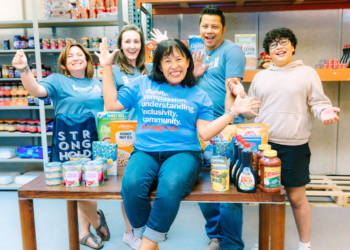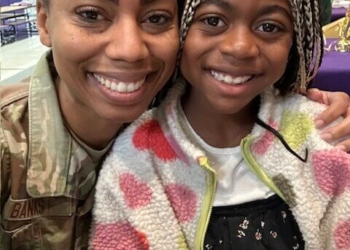After nine months in the classroom, students spend a well-deserved summer break enjoying their freedom. Unfortunately, three months without rigorous academics can cause students to regress academically. The good news? Learning can still happen while spending time outside with friends or on vacation.
What is the summer slide?
“The ‘summer slide’ is the tendency for students to lose some of the achievement gains they made during the previous school year,” (Colorado Department of Education, 2014). While it’s difficult to pinpoint the most at-risk demographic, parent involvement, age, socioeconomic status and income impact retention.
Reading and math are especially vulnerable areas. A 2020 study showed that 3rd-5th-grade students lost 20-27% of their gains during the school year in reading and math.
Ways to prevent it
Preventing the summer slide doesn’t mean a summer of formal learning and no fun. There are many effective ways to incorporate academics outside of school. By using local resources and getting creative at home, parents can facilitate learning over the summer break. This helps bridge the gap between the end of the school year and the start of the upcoming year.
Utilize summer reading programs
Many schools and libraries offer supplemental learning programs in the summer. Christine Levine, supervising librarian at Whiteman Air Force Base, encourages families to get involved in summer reading programs.
“Whiteman Library provides a Summer Reading Program sponsored by the Department of Defense Morale Welfare and Recreation (DODMWR) Libraries and this year, United Through Reading. Children and adults can sign up and log reading minutes for eight weeks to earn prizes. We provide fun activities for six weeks, including educational and informative presentations,” she said.
Summer reading programs in schools, bases or local libraries are great ways to stay accountable. And who doesn’t love earning prizes!?
Practical practice
You can practice academic skills anytime by incorporating them into daily life. Allow your child to distribute or count money when paying at the ice cream shop or grocery store. When baking, offer your child some measuring cups. Incorporating practical learning helps kids reinforce skills, allowing them to do so in a real-world scenario.
Kaitlin Finchum has her 9-year-old son help in the kitchen.
“We do a lot of baking and cooking. I’ll get convenience meals and have him follow the directions on his own… I like to hide the one cup and one teaspoon/tablespoons to force him to use smaller cups to figure out how to get to where he needs to be and work on fractions,” Finchum said.

Get the entire family involved
As siblings are home over the summer, involve the whole family in fun but educational experiences. Have a family reading time or game night. Children are more inclined to read when they see the adults in their lives doing the same.
Change of location
Summer is a great time to get outside and explore your local attractions. Visit local museums, science centers or other resources. Most museums, botanical gardens, zoos or aquariums have plenty of (often free!) activities to aid parents and caregivers.

“Try vacationing in places where you might visit different historical, art or natural reserves to learn about things outside where you live,” Christine Levine encourages.
Technology is not the enemy
We often feel pressure to get kids off of screens and outside. And while spending time outdoors is necessary, screens aren’t always bad. Using technology intentionally can also bridge the summer learning gap. Set limits and be aware of what kids are doing on screens. But using technology as a tool and even attaching some incentives to it can help students continue to excel over the summer.
Don’t overcomplicate it
Learning at home doesn’t have to be complicated. Don’t be afraid to get creative. And remember, learning can happen anywhere. Even vacations!
Beth McNerney and her two boys are always looking to learn.
“We are firm believers in experiences over the summer! We counted seashells at the beach and researched sand crabs and blue button jellyfish because we found both,” McNerney said about her first grader and preschooler. “We wrote our names and words in the sand and then did a few worksheets,” she shared.
Try drawing math problems with chalk or writing words in the dirt. Incorporate academic skills into summer activities like water play, crafts or other daily play. Your child can still practice math or reading while having fun, maybe without even realizing it!








































